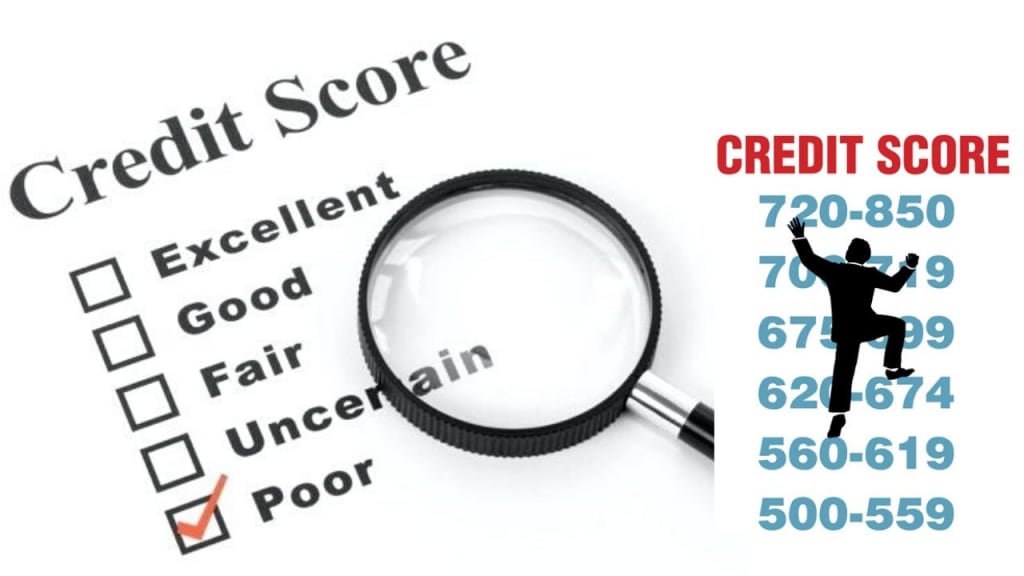How to Get a Mortgage with Bad Credit
How to qualify with bad credit

How to Get a Mortgage with a Bad Credit
Purchasing a house is the most significant milestone and challenge for many Americans, especially the millennia. To many, this might be the biggest purchase they ever make in their time.
A bad credit score does not be the obstacle to getting your dream home. Set your mind to it and slowly find better ways to earn money to clean and improve the credit score by improving the payment history.
Lenders consider a good credit score to be anything above 700. Meanwhile, scores below 600 are viewed as bad credit and some lenders have credit score minimums of 620.
Although there are many different types of mortgages, your credit score may be the deciding factor whether you will qualify for a particular type of mortgage. People who want to buy a home with bad credit will be looking for bad credit mortgages or subprime mortgage or even adverse credit mortgage.
Benefits of having a good credit score
Credit scores of 700 or higher will not only help you to qualify for the type of mortgage you want, but there will be other benefits that come with a higher credit score.
Lower Interest Rates – If your score is at least 700 or higher, you may qualify for the best possibly interest rate offered by your lender. Your credit score is an indicator of your ability or willingness to repay your debts on time. So, as your credit score declines, is signals risk to the lenders which is why they increase the interest rates for poor credit.
Down Payment – Another benefit of having a good credit score is to get the lowest down payment possible. Just like with interest rates, lenders will adjust their down payment requirements depending upon your credit scores. The better your credit, the lower the down payment requirement may be. That said, the more you put down, the lower your rate will also be.
Preparing to apply for a mortgage with bad credit
Well before looking for a home, borrowers should speak to a loan officer and start working on improving their credit if needed. The first step is to get a copy of your credit report to see what it looks like. You can get a copy through online sources such as Credit Karma for example.
Next, your lender can help you to increase your credit score by determining which items on your report can be improved upon or corrected.
After you develop a plan with your lender, it is important to pay everything on time and to keep from increasing your credit card balances. Do not make any large purchases using credit either.
How difficult it can be to get a Bad Credit Mortgage
Creditors mostly reject individuals with a lousy credit score as they view them as high risk. Things are now changing as some lenders offer loan programs for individuals with poor credit. These loans are typically called subprime mortgages.
Saving tips for buying a house
We are discussing saving for a down payment because the larger down payment amount is what lenders will look for in exchange for a lower credit score.
1. Find out how much you need
Many mortgage lenders would prefer a 20% down payment from a risk perspective. The government intervention and high market competition have made it favorable, and now they can offer programs with a down payment as low as 3%. The government has offered financial mortgage through the FHA loan, which provides at a rate of 3.5%, which requires no down payment at all. You can get an FHA loan with bad credit as well, but your down payment requirement will be 10% if your credit score is below 580.
2. Control your debt
Debt is tough to keep under control, especially when saving for a house as a lot of cash goes into repaying the loan. Having too much debt can make it challenging to qualify for a mortgage loan. It will likely drive your debt to income ratios up making it difficult to qualify.
3. Hold the retirement plan savings on hold
Although saving for retirement is very important, if you put that on hold for a short time to save for a larger down payment, you will likely get a lower interest rate which could save on monthly interest payments. Then, you can put the monthly savings towards retirement later.
4. Embrace technology to improve saving
There many new apps that can help manage finances and help you save. Technology has come up with a unique algorithm that helps in saving without hurting your budget plan.
5. Get another job
Nowadays, there are many ways to make money. Find something to do that will help you quickly make some cash help facility the down payment mortgage savings. This can be something you do for just a few months to come up with the down payment you need.
Summary
In the end, improving your credit score is the best course of action prior to applying for a mortgage. However, if you are unable to do that, there are still bad credit mortgage options available to you. Even if you have a recent bankruptcy or foreclosure, you will find a lender who can help with your mortgage when the traditional banks won’t.






Comments
There are no comments for this story
Be the first to respond and start the conversation.